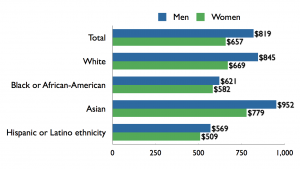Shannon Mullery
“A compromise is an adjustment of conflicting claims by mutual concessions. This means that both parties to a compromise have some valid claim and some value to offer each other. And this means that both parties agree upon some fundamental principle which serves as a base for their deal.” – The Virtue of Selfishness.
I begin with the reiteration of this quote from my philosophical novel in order to illustrate and define the concept of compromise. Compromise is not a means of robbery, an unfair negotiation solicited by thugs, or one man’s surrender of property gained fairly to the whims of another man’s desires. One man’s ownership of any tangible resource or object must be earned, traded for, or his for the taking; if ownership is claimed without these requirements, then it is not in fact “ownership” but rather “theft” – one of the most deplorable human transgressions, which contributes to the various practices of human bondage.
In the instance of the North Dakota Access Pipeline, there are only a few vital, uninterpreted facts to consider. The argument being made by protestors relies on the Sioux tribe’s claimed ownership of the land and the water supply the pipeline would run under. Without any legal grounds, literal claim, or otherwise established ownership to the land, there is no argument for preventing the pipeline’s construction; however, the water is a public resource for which there could be an argument for ownership made. The tribe points to the number of instances in which water sources have been tainted by similar projects since 2010. If such damage were easily detectable after the construction (and the pipeline, relatively easy to deconstruct/remove), or easily predictable before the pipeline’s construction, the issue of ownership would favor the DAPL; however, as I state in the first chapter The Virtue of Selfishness, all ethical arguments must be based upon the principled value of life, as it is the only inherent, unarguable value that must be respected in and of itself. Water is an absolutely essential, fundamental necessity to the preservation of human life, even without the pretense of formal (legal) ownership. This is a value which cannot be dismissed or manipulatively redefined, and in the conflict of the North Dakota Access Pipeline, there are no basic values that the opposing parties may agree upon and preserve for a fair compromise to be negotiated. If the case was altered so that there were other means of acquiring clean drinking water in the historically plausible instance of this particular body of water’s contamination (and an absolute means of measuring the impact of the pipeline’s construction, prior to the harm imposed on human life, that would be caused by the water’s potential contamination), compromise would be possible; however, such an alternative is either ostensibly unavailable or simply has not been offered to the Sioux tribe.
The argument that has been made for the pipeline’s construction is a broad, non-objective cost-benefit quantification of the probable increase in energy accessibility and the probable profit to be gained by the pipeline’s investors, versus the potential harm that may be caused to a smaller number of people; however, this argument is an altruistic one that relies on the notion that “good” is quantified by the number of individuals benefited, no matter the means and no matter the level of harm thrust upon a smaller group of individuals. Is the murder of one man justified by the monetary gains of two men? Of course not. This is not compromise; this is the definition of human bondage.
.

